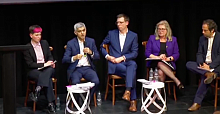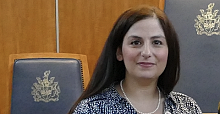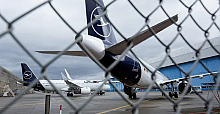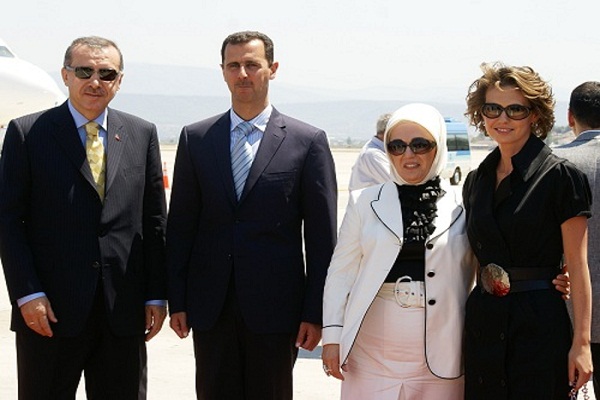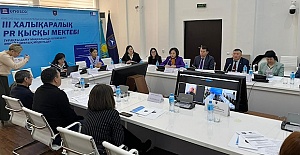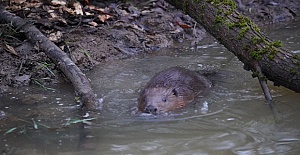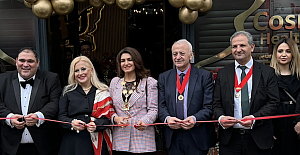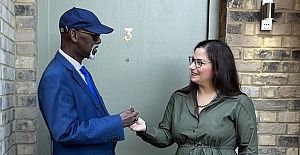ANTAKYA, Turkey — Turkey, a rising heavyweight in the Muslim world, has led the international campaign to oust the regime in next-door Syria. But as the fighting drags on, Turkey is complaining that the United States and others have left it abandoned on the front line of a conflict that is bleeding across its border.
With its calls for an international haven for refugees in Syria going nowhere, Turkey is rushing to shelter an influx of about 80,000 Syrians. In the east, Kurdish militants who Turkey alleges are aided by Syria are intensifying deadly attacks. And in this Alawite-heavy border region, a rest and resupply hub for the mainly Sunni Syrian rebels, worries are growing that Syria’s sectarian strife might infect Turkey.Turkish officials stand behind their Syria policy, and the problems have posed little threat to the moderately Islamist government of Prime Minister Recep Tayyip Erdogan or to Turkey’s carefully cultivated popularity in the region. But as opinion polls indicate declining domestic support for the government’s stance, Turkey is finding it has limited room to manage fallout that analysts say it did not anticipate when it turned against Syrian President Bashar al-Assad last year.
“Ankara now realizes that it doesn’t have the power to rearrange — forget it in the region, but also not in Syria,” said Gokhan Bacik, director of the Middle East Strategic Research Center at Turkey’s Zirve University. “So Ankara desperately needs American support. But American support is not coming.”
When a U.S. delegation visited late last month, the Turks made the case they had made two weeks earlier to Secretary of State Hillary Rodham Clinton, a senior administration official said: They were overwhelmed with Syrians, and they wanted the United States and others to establish safe areas, protected by a no-fly zone, for them inside Syria. Their limit, the Turks warned, was 100,000 refugees.
Clinton, confronted with emotional Turkish pleas, said that a no-fly zone would require major outside military intervention and that the United States did not believe it would help, according to the official, who spoke on the condition of anonymity to discuss sensitive conversations. But rather than dismiss Turkey’s concerns outright, Clinton called for further bilateral discussions and an “operation and command” structure for the two governments to coordinate their responses to the crisis.
Turkey’s posture toward Assad is the result of an about-face. Before the uprising, Syria was the centerpiece of Turkey’s “zero problems with neighbors” foreign policy, and trade and travel between the countries flourished.
Now Turkey hosts the opposition Syrian National Council and provides a haven to the rebel Free Syrian Army and hundreds of defected Syrian soldiers. On Wednesday, Erdogan called Syria a “terrorist state.” The stance has boosted Turkey’s credibility in the Arab world but complicated its relations with Iran and Russia, which support Assad.
Turkey has constructed a string of 11 refugee camps along its border and is building more for newcomers, who the government says enter at a rate of 4,000 a day. Thousands are packed into public schools and dormitories, and hundreds of Syrians are being treated in Turkish hospitals.Turkey backtracked on a recent statement that it would close its doors at 100,000 refugees. But Foreign Minister Ahmet Davutoglu, who is facing growing criticism at home, suggested regret last week over the open-door policy.
“There is an increasing sense in Turkey that, through making such a sacrifice and tackling an enormous issue all by itself, we are leading the international community to complacency and inaction,” he said at the United Nations.The refugee crisis is swelling as Turkish headlines are dominated by deadly battles in the alpine southeast between security forces and the Kurdistan Workers’ Party, or PKK, which has waged a separatist insurgency for 28 years. Turkish officials accuse Syria of arming the guerrillas and empowering a PKK offshoot in sections of northeastern Syria along the Turkish border. Last month, Turkish officials blamed the PKK for a bombing that killed nine civilians in the city of Gaziantep.
Turkey is particularly concerned that Syrian missiles could fall into the hands of the PKK, enabling it to attack the helicopters Turkey relies on to fight the insurgents, Bacik said.
Yet even as Turkey condemns Assad, frets about a growing power vacuum in Syria and pleads for international intervention, officials and analysts say the country has no appetite for deploying its military unilaterally to confront Assad or secure a refugee zone.
There is widespread public opposition in Turkey to military action, and analysts say Turkey is wary of jeopardizing its popularity in a region where the legacy of Ottoman rule remains fresh. The Turkish military is ill-prepared for what could be a prolonged, Iraq-style sectarian war, said Henri Barkey, a Turkey expert at Lehigh University in Pennsylvania.
“They realize this is a Pandora’s box, that you go in and God knows how you’re going to come out,” Barkey said.
Barkey said Turkey’s 566-mile border with Syria made the conflict “a no-win situation for the Turks from the beginning.” Turkish commentators and opposition politicians have seized on the issue as a policy failure, and some analysts and U.S. officials said Turkey exacerbated its woes by limiting U.N. involvement in the camps and allowing Sunni rebels and refugees to concentrate in the largely Alawite province of Hatay.
“The government is facing a crisis for which it has no answers, and a public at home that is growing increasingly uneasy over this,” Semih Idiz, a foreign policy analyst, wrote in the Hurriyet Daily News, an English-language newspaper in Turkey. “If this is not a debacle, then what is?”
That unease is palpable in Antakya, less than an hour from the border. Many residents of this scenic town and surrounding Hatay province are members of the Alawite minority Shiite sect that dominates the Syrian regime. Syria and Turkey are majority Sunni.
Antakya had been a shopping destination for Syrians. Since the rebellion, it has become a base for Syrian refugees and rebels, including thickly bearded men who stand out in a town where sundresses and shorts are common. Cross-border trade has slowed, and apartment prices have spiked.Here, support for Assad remains strong, and there is simmering anxiety that Erdogan, the prime minister, is supporting the Syrian rebellion to cement Sunni supremacy in the region. Those fears have been stoked by Turkey’s main opposition party, which has accused the government of training radical Islamists in a nearby camp for defectors. The government denies that and says it has not armed rebels.
“They’re shaping some new religious fighters. What is the guarantee those fighters would not fight back against Turkey someday?” said Refik Eryilmaz, an opposition member of parliament from Hatay, which hosts five refugee camps.Ismail Kimyeci, the Hatay chairman of Erdogan’s ruling Justice and Development Party, or AKP, said critics are overstating the presence of fighters in Antakya. He dismissed the concerns as propaganda meant to stir division. “The Syrian people are demanding a new, free country,” Kimyeci said. Of the Syrians in Hatay, he said: “We don’t really see which religion they are. The Turkish policy is to help everyone.”
But tensions are festering. In interviews, Antakyans complained about Syrian rebels ditching restaurant tabs or robbing women of their jewelry, though none could cite personal experience. Last weekend, several thousand people protested Turkey’s participation in what was described as an imperialist plot against Syria. Some said all rebels must leave Turkey.
“They are saying, ‘After we finish in Syria, we will cut your throats here,’ ” said Ali Zafer, 33, a teacher who said he supports Assad, describing one common rumor about the rebels. Turkey, he said, “especially brought them to Antakya, to kill Alawites.”
Syrians interviewed said they generally feel welcome but know that might wear off. At a rebel safe house in Reyhanli, where the Alawite population is smaller, occupants said Turks stop by with supplies and encouragement.
“We are trying our best to obey the rules of a foreign country,” said a rebel commander who goes by the nom de guerre Abu Hashim.
But he also contended that the controversy should motivate Turkey to speed an end to the war. “It’s better for the Turkish government to send us weapons,” he said, “so they can avoid this fuss here.” (Published on Turkish Politics On September 9)



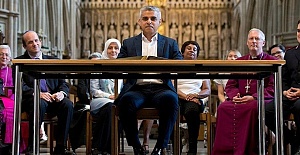 The candidates vying to be the next London mayor
The candidates vying to be the next London mayor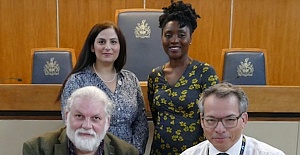 Enfield Council commits to anti-racism and diversity pledge
Enfield Council commits to anti-racism and diversity pledge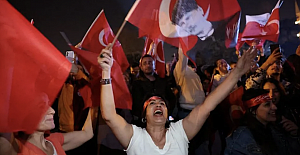 President Erdogan promised supporters his party would learn its lessons from the defeat
President Erdogan promised supporters his party would learn its lessons from the defeat Mayor of London and London Assembly elections
Mayor of London and London Assembly elections UK and US scientists have been working on eclipse observations
UK and US scientists have been working on eclipse observations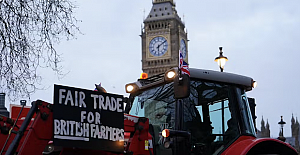 Unsupportive goverment policies jeopardizing foundation of UK food security
Unsupportive goverment policies jeopardizing foundation of UK food security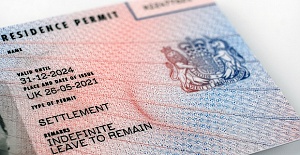 UK Visas and Immigration UKVI are developing a digital immigration system named eVisa
UK Visas and Immigration UKVI are developing a digital immigration system named eVisa Oppenheimer sweeps awards with best picture and actor wins, Oscars 2024
Oppenheimer sweeps awards with best picture and actor wins, Oscars 2024 English Premier League leaders Arsenal will visit title contenders
English Premier League leaders Arsenal will visit title contenders Liverpool meet Atalanta and West Ham face Bayer Leverkusen
Liverpool meet Atalanta and West Ham face Bayer Leverkusen Arsenal face Bayern Munich and Manchester City play Real Madrid
Arsenal face Bayern Munich and Manchester City play Real Madrid UK Transfer deadline day, the transfer window closes tonight
UK Transfer deadline day, the transfer window closes tonight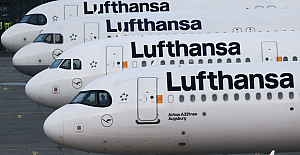 Europe's travel strikes: Flight and train disruption you can expect in April
Europe's travel strikes: Flight and train disruption you can expect in April Enfield Council website achieves digital inclusion recognition
Enfield Council website achieves digital inclusion recognition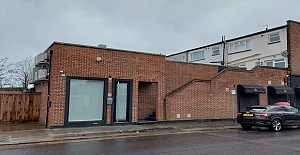 Enfield Council’s Planning Enforcement team goes from strength to strength
Enfield Council’s Planning Enforcement team goes from strength to strength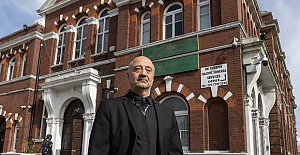 UK's first Turkish Shacklewell Lane Mosque faces threat to its future
UK's first Turkish Shacklewell Lane Mosque faces threat to its future
